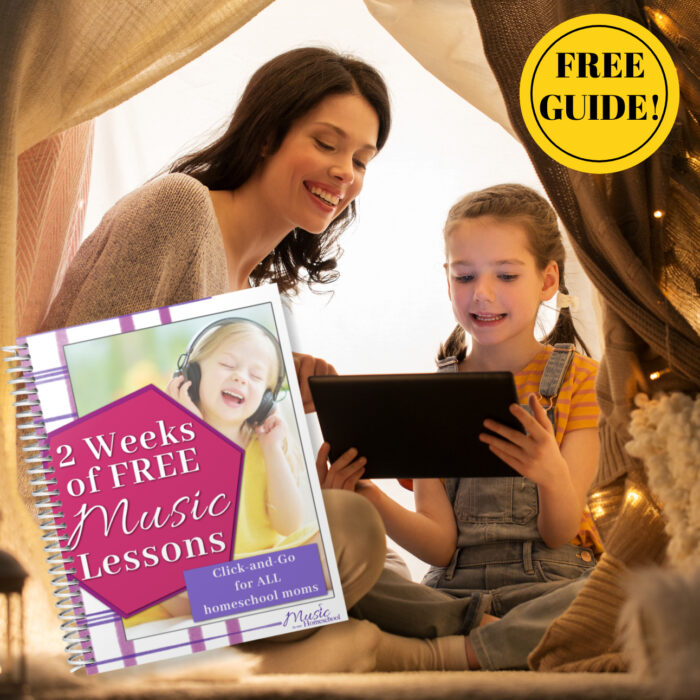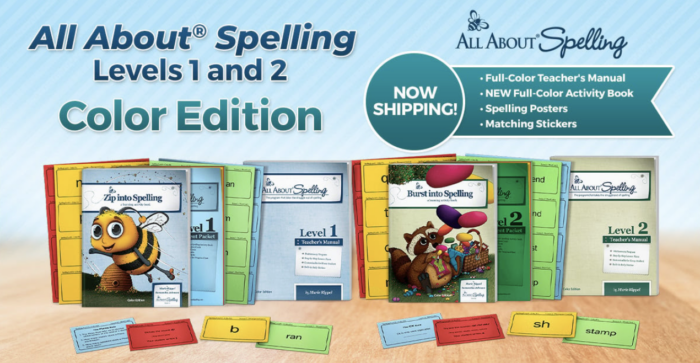How to Teach a High School English Survey Class at a Homeschool Co-op
[Today's post “How to Teach a High School English Survey Class at a Homeschool Co-op” was written by contributor and homeschool mom Michelle Habrych.]
How to Teach a High School English Survey Class at a Homeschool Co-op
I always enjoyed English classes in school, and I love reading, writing, and discovering. I teach many classes at our homeschool co-op, and felt that too often homeschoolers get stuck on one category as a course: writing, literature, grammar, and so on. In response, I put together and taught “High School English Survey,” a high school class at my co-op. Let me share with you what we did so you can do this on your own or with a group too!

How to Divide up the 32 Weeks
Our co-op has 32 weeks set aside for high school level classes. I planned to divide those weeks evenly between different genres of literature. The plan did not work as evenly as I had hoped, but I still provided a survey of literature, grammar, and writing.
Poetry
The first seven weeks we dug into poetry. Using the set of books How to Read a Poem and How to Write a Poem, written by Tania Runyan, students walked through the exercises in each book, focusing mainly on free verse.
In the second book, the students wrote and revised a poem. I highly recommend these books. I had them also try writing a haiku and a sonnet. We took turns reading aloud from poetry books I brought into class, and we enjoyed listening to some being read on videos I found on YouTube, such as Shel Silverstein’s works or Poe’s “The Raven” read by Christopher Lee.
Homeschool Co-op Literary Magazine
As part of the class requirements, I had each student submit one of his or her poems to be published in our homeschool co-op literary magazine. This gave them an audience for their work, aside from sharing with the other teens in the class.
Literary Terms
Students were also taught different literary terms using lessons I purchased on Teachers Pay Teachers: Literary Term of the Week by Presto Plans and Four Week Poetry Unit by Laura Randazzo. I used the term of the week throughout the school year. The four-week unit introduced them to Whitman, Shakespeare, and Poe while getting them to compare lyrics from a modern song to a poem from 1794! It definitely added to our study.
Drama
Next, we studied drama for five weeks. I had chosen the satirical The Importance of Being Earnest by Oscar Wilde. The class absolutely loved it! We read it aloud together during class, which had them in stitches. For homework, they did discussion questions and journal entries from a bundle I got on Teachers Pay Teachers. We talked about the background of the play and Victorian society, which I got from the bundle. We even had cucumber sandwiches for our end of semester viewing of the 2002 movie production. They continued to quote the play often throughout the school year.
Novels
After Christmas break, we dove into novels. The two novels we studied were To Kill a Mockingbird by Harper Lee and Lord of the Flies by William Golding. I chose the first and my husband had asked me to have the kids read the second, so I put it into the class plans. Both novels had a lot to teach the kids. We discussed symbols, themes, motifs, and other literary elements.
Lesson Plans for To Kill a Mockingbird
To help with Mockingbird, I purchased and used Laura Randazzo’s lessons on it from Teachers Pay Teachers. This bundle provided great homework questions, discussion points, and tests. The students were broken into groups to do activities Randazzo created to help them understand the financial situation of the characters in the novel at that time. We tried her blackout poetry project with pages from the book; one student even chose this for her poem to be entered into the co-op literary magazine. One activity in the bundle which reviewed the novel prior to the test was a fun game, which the students enjoyed a lot.
Grammar
During this semester we started extra grammar practice. My teens have done the Analytical Grammar program, which I highly recommend. (See review of Analytical Grammar here.) I wanted to incorporate the review book into our school year as well, so I planned for the class to do the Analytical Grammar’s High School Grammar Reinforcement: Shakespeare’s Plays. This would give us weekly review of parsing, diagramming, and proofreading skills. Unfortunately, the class needed more help than I anticipated with these skills, so we were not able to complete the book in the semester. It did, however, accomplish the goal of getting them to practice and re-learn when necessary!
Lord of the Flies
When we got to Lord of the Flies, the mood in the class changed. The students did not like the book at all. To try to make it more enjoyable, I used a kit I purchased off Teachers Pay Teachers, and it did help keep them on track. It focused on vocabulary, symbolism, literary elements, and more, but the students just didn’t appreciate the storyline. I cannot say I blame them. I would not recommend teaching this book with a group of teens.
Short Story Unit
To finish off the school year, we did a short story unit. I struggled over which stories to include in the short amount of time we had to study. I ended up going with a Teachers Pay Teachers contributor whose materials I really liked in the past. Laura Randazzo put together this nine-story unit. and it did not disappoint! The stories were a great mix. Her activities had the students try some creativity along with reading comprehension. There was too much for us to complete all of the activities, but the kids seemed to enjoy it. They created projects based on the stories and did some creative writing.
Essay Writing
Also during the second semester, I challenged the students to write some essays to practice their skills. I only did some basic refresher skills teaching prior to the assignments. Some students needed more help than others. Adding the writing assignments helped to make for a well-rounded English class. The homework load for this class was heavy, but I felt it was a good way to get it all done. I taught it for eighth through eleventh grades.
Related Posts:
- Nervous to Homeschool High School? You can do it!
- Tips for Transitioning from Middle to High School
- Middlebury German for High School
Michelle Habrych is an experienced homeschool mom of two teens and has been teaching at homeschool co-ops for many years.






This was such a helpful article because I’m in the same boat with our co-op. However one concern is the cost. Do you know the total cost you had spent for all your teaching materials? It seemed to add up! Does your tuition pay cover those supplies?
Thank you 🙂
Answer from Michelle: Yes, I charged tuition for the supplies and it covered the cost, as well as providing for my class prep, teaching, and grading time. My tuition per student was $350, which included all of the books the students would need. To accommodate families, if they already had a copy of a certain text, I deducted the price from the tuition. I negotiated a group price for the grammar books, which was cheaper than what the parents could do on their own, unless they already had a copy for some reason. As for the total cost, I no longer have those numbers to share with you as prices change so often. Best wishes!